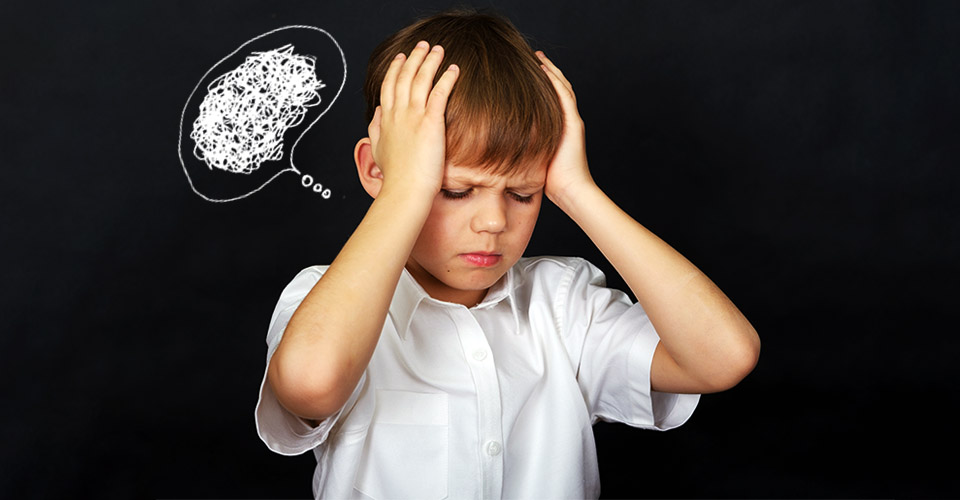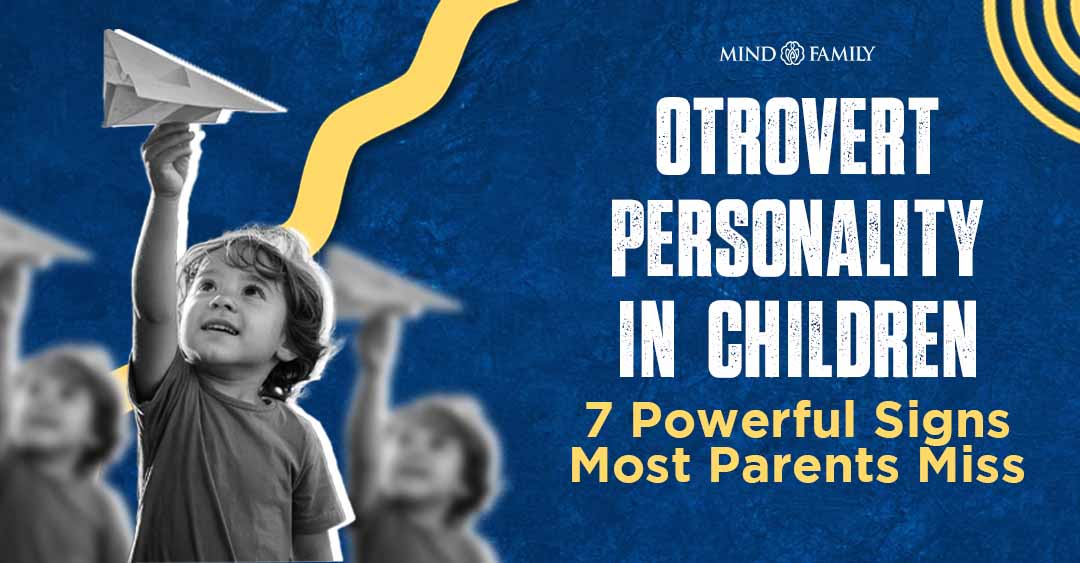Knowing how to treat anxiety in a child is paramount for parents and caregivers tasked with nurturing their emotional well-being. Recognizing the signs of anxiety in children and learning effective treatment strategies are essential steps in providing the necessary support and guidance.
In this article, we will explore what is childhood anxiety, starting with common signs and symptoms that may indicate a child is struggling.
Following that, we will delve into ten effective strategies tailored for treating anxiety in children. So without further ado let us begin!
10 Clear Signs Of Anxiety In A Child
Anxiety in children can manifest in various ways, and parents and caregivers need to be aware of the signs so they can provide support. When learning how to treat anxiety in a child it is important to recognize the signs and symptoms appropriately.
Here are some common signs of anxiety in a child:
1. Physical Symptoms:
Children may feel bellyaches, headaches, nausea, or other physical discomforts that don’t appear to have a clear medical cause. These symptoms could pop up before or during stress-inducing situations, acting like signs of distress.
2. Changes in Sleep Patterns:
Anxiety can mess with a child’s sleep, causing issues like insomnia and nightmares. Sleep disturbances can amplify anxiety and impact their overall well-being, so it’s necessary to address the anxiousness behind it all. That way you can restore healthy sleep patterns.
3. Changes in Appetite:
Kids might start eating a lot more or a lot less than what they used to eat when anxiety kicks in. Emotional distress has a funny way of altering appetites and that’s not good for your child’s health and wellness.
4. Avoidance Behaviors:
Avoiding things is what kids do best when they’re anxious about something because they want nothing more than to steer clear from whatever is causing that feeling. However, by avoiding these triggers children are actually reinforcing fear instead of facing it head-on so they should be gradually helped along so they can learn how to cope better.
5. Excessive Worrying:
Worrying is normal but excessive worrying about things such as school performance or family matters isn’t healthy for anybody at all ages especially younger kids who might have trouble concentrating in school due to their overwhelming levels of anxiety.
6. Irritability:
Outbursts of frustration or anger are extremely common when someone is feeling anxious so if your child seems agitated every second of the day then chances are there’s some unsettling thoughts clouding their little heads.
7.Perfectionism:
Pushing themselves too hard for no reason is never good but especially not when your kid doesn’t need any extra added stress on top of everything else going on with them.
8.Difficulty Concentrating:
Kids should never have trouble in school at such a young age but those with anxiety may find it difficult to focus and concentrate. Obviously not being able to concentrate would cause issues like failing tests which will only worsen the child’s mental state and chances are they might start thinking they’ll just never be good enough.
9. Physical Restlessness:
Fidgeting around or not being able to sit still is a pretty obvious sign that your kid has too many thoughts running wild through their head so letting them get moving or giving them some sort of sensory input will help calm them down and de-stress.
10.Excessive Self-Criticism:
Just like adult’s kids tend to beat themselves up over things that should be looked at as a learning experience instead of a failure. Anxiety isn’t going to make this any better, in fact it’s only going to worsen it so promoting positive self-talk and self-image will definitely help alleviate some of this uneasiness.
Keep in mind that every child is unique so while some symptoms may apply others might not. Similarly, certain behaviors could also just be typical for their developmental stage but keep an eye out for when you’re questioning how to treat anxiety in a child.
Read More: How To Deal With Anxiety At School: 10 Useful Tips For Teachers!
Why Is It Important To Lower A Child’s Anxiety?
Learning how to treat anxiety in a child is crucial for their overall well-being and development.
Here are several reasons why it’s important to address and lower a child’s anxiety
1. Promoting Mental Health:
Addressing anxiety in childhood can prevent the development of more severe mental health issues later in life. By providing support and teaching coping strategies early on, children can learn to manage their emotions and build resilience, laying a foundation for long-term mental well-being.
2. Improving Physical Health:
Chronic anxiety can take a toll on physical health, leading to symptoms such as headaches, stomachaches, and sleep disturbances. Lowering anxiety levels can alleviate these physical symptoms and promote overall well-being, allowing children to thrive physically and mentally.
3. Enhancing Academic Performance:
Anxiety can interfere with a child’s ability to concentrate, learn, and perform academically. By reducing anxiety, children can better focus on their studies, participate in classroom activities, and reach their full academic potential, setting them up for success in their educational journey.
4. Strengthening Social Relationships:
Anxiety can hinder a child’s social interactions and lead to avoidance of social situations. By lowering anxiety levels, children can feel more comfortable engaging with peers, building friendships, and developing important social skills, fostering healthy relationships that contribute to their happiness and well-being.
5. Fostering Emotional Regulation:
Chronic anxiety can make it challenging for children to regulate their emotions effectively. By addressing anxiety and teaching coping strategies, children can learn to identify and manage their feelings in healthier ways, promoting emotional resilience and stability.
6. Encouraging Healthy Coping Mechanisms:
Without proper support, children may turn to unhealthy coping mechanisms to manage their anxiety, such as avoidance, substance use, or self-harm. By providing alternative coping strategies and support networks, children can develop healthier ways of dealing with stress, setting a positive precedent for managing challenges throughout life.
7. Preventing Avoidance Behaviors:
Anxiety often leads to avoidance of anxiety-provoking situations, which can reinforce fears and make anxiety worse over time. Making an effort to lower a child’s anxiety can help children confront their fears gradually and build confidence in facing challenges, empowering them to approach life with courage and resilience.
Addressing and learning how to treat anxiety in a child is essential for their overall growth, happiness, and long-term well-being. By recognizing the importance of early intervention and providing appropriate support and resources, we can help children develop the skills and resilience they need to lead fulfilling and emotionally healthy lives.
Read More: 10 Key Benefits of Play in Early Childhood Development
How To Treat Anxiety In A Child: 10 Helpful Methods
Treating a child’s anxiety requires a lot of things since it is not just about them emotionally, but also physically.
Here are 10 strategies you can use to learn how to treat anxiety in a child:
1. Therapy and Counselling:
Therapy is the most effective way to treat childhood anxiety. Through therapy sessions, children learn how to identify what they’re feeling, challenge negative thoughts, develop coping skills, and gradually do things that scare them to become less scared in general.
2. Parental Support:
Parents are the biggest support system for their kids during hard times. Educating parents on the subject of anxiety and advising on how they can help their child at home will enhance treatment outcomes and strengthen family bonds.
3. Mindfulness:
Teaching your children mindfulness techniques like taking deep breaths, muscle relaxation, or guided visualization can greatly benefit them in managing stress effectively.
4. Exercise:
Being active helps your mental health more than you’d think which makes it that much better for your anxiety levels too! Physical activity releases endorphins making us feel good so why not get up and move?
5. Lifestyle Habits:
Encouraging healthy habits like eating right, getting enough sleep, and limiting screen time are very beneficial for someone’s mental health overall.
6. Social Skills Training:
Some children aren’t born with the same confidence others have when facing social situations which can make going out rather difficult sometimes due to major discomfort being felt by the anxious one. Involving them in social activities that require interaction will help build confidence around others.
7. Medication if necessary:
In severe cases medication may be prescribed by professionals however should always be used along with therapy.
8. School-Based Interventions:
School isn’t easy for anyone as kids must go through lots of changes while trying to maintain good grades but they must also keep their mental health intact too! Working together with school personnel to implement anxiety-reducing strategies in the school environment can support children’s emotional well-being and academic success.
9. Gradual Exposure Therapy:
Gradually exposing children to things that scare them most and supporting them in a controlled manner will allow them to confront their fears gradually, which is going to build their confidence over time
10. Consistent Support:
Providing consistent support, validation, and encouragement for your child is an essential part of a healthy parent-child relationship. Adaptations may need to be made but progress will come.
Combining these approaches on how to treat anxiety in a child is crucial to meet the individual needs of each child. It’s possible to effectively manage and treat anxiety in children, empowering them to lead happier, healthier lives.
Read More: 10 Effective Ways to Develop Emotional Intelligence in Children
A Word From Mind Family
As a family navigating the complexities of anxiety in children, it’s crucial to remember that each child’s journey is unique. By understanding the signs of anxiety and implementing effective treatment strategies, we can support our children in overcoming their fears and building resilience.
Together, we can create a safe and nurturing environment where our children feel empowered to confront their challenges and thrive emotionally and socially.
Let’s continue to prioritize their mental health and well-being, offering unwavering love, patience, and encouragement every step of the way.
Frequently Asked Questions (FAQs)
1. What are the signs of anxiety in a child?
Signs of anxiety in a child include physical symptoms like stomachaches, changes in sleep patterns, appetite alterations, avoidance behaviors, excessive worrying, irritability, perfectionism, difficulty concentrating, restlessness, and self-criticism.
2. Why is it important to lower a child’s anxiety?
It is important to lower a child’s anxiety as it is crucial for their mental and physical health, academic performance, social relationships, emotional regulation, and overall quality of life.
3. How to treat anxiety in a child?
Treating anxiety in a child involves therapy, parental support, mindfulness, exercise, healthy habits, social skills training, medication if necessary, school-based interventions, gradual exposure therapy, and consistent support from caregivers.












Leave a Reply